- A Reddit user's query about a $3 million, 30-year lease for a solar farm ignited an enlightening conversation on financial, legal, and environmental implications.
- Key advice centered on securing decommissioning bonds, addressing tax increases, and ensuring inflation-adjusted payments.
- Could this thread become a blueprint for landowners facing similar offers?
A Reddit user recently turned to the platform for advice on an intriguing but daunting proposal: a $3 million, 30-year lease of his 70-acre property for the development of a solar farm.
The user, posting under the handle Fit-Razzmatazz410, described the opportunity as potentially life-changing but fraught with unknowns. The lively discussion that ensued revealed insights from renewable energy professionals, landowners, and attorneys, underscoring both the promise and pitfalls of such arrangements.
The Proposal
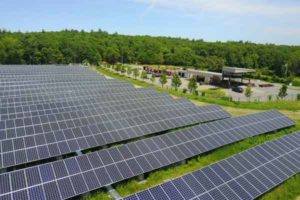
Solstice works with solar developers to fund large, remote solar farms that communities can invest in (Image courtesy of Solstice)
The proposed deal promises $100,000 annually over three decades in exchange for leasing the land for a utility-scale solar project. While the financial terms seem attractive on the surface, the user expressed concerns about the finer details of the contract and the long-term implications for his property. “I can read the contract,” he wrote, “but I don’t know what questions to ask or what pitfalls to watch for.”
The post quickly attracted a wide range of responses, highlighting issues such as decommissioning bonds, property tax implications, and the need for expert legal advice.
“Make sure dismantlement is funded prior to construction,” advised one commenter, underscoring the importance of a decommissioning bond.
Expert Insights and Community Advice
Decommissioning and Restoration
A recurring theme in the thread was the importance of securing a decommissioning bond to ensure the site is restored to its original condition after the lease expires. Several contributors warned that without such provisions, landowners could face significant cleanup costs decades down the line. “Make sure dismantlement is funded prior to construction,” wrote one commenter. Another user clarified this as a “decommissioning bond,” which is often mandated by local governments but should also be explicitly addressed in the lease.
Inflation and Escalators
Many commenters emphasized the need to account for inflation. Over 30 years, $100,000 annually could lose significant purchasing power. “Ensure the lease includes a 2-3% annual escalator,” suggested one renewable energy developer, noting that this is standard practice in many agreements.
Tax Implications
The potential for increased property taxes was another point of concern. Solar farms can lead to a reclassification of land use, often resulting in higher taxes. Several users recommended including provisions in the contract to ensure the developer covers any tax increases.
Legal and Professional Support
The overwhelming consensus was to hire an attorney experienced in renewable energy leases. “General practice lawyers might miss key clauses,” one user cautioned, underscoring the importance of specialized expertise. Others advised researching the developer’s track record and speaking with landowners who have worked with them previously.
Dual-Use Opportunities and Other Considerations
Several contributors highlighted the potential for dual-use land practices, such as grazing livestock beneath the solar panels, known as agrivoltaics. This could provide additional income streams while maintaining some agricultural use. However, other users noted the challenges associated with such arrangements, including restrictions on vegetation and the risk of soil degradation.
Access and maintenance obligations also came under scrutiny. “What happens if their equipment causes damage? Who’s responsible for maintaining roads or fences?” one commenter asked. These details, contributors argued, should be explicitly spelled out in the lease.
Broader Implications
The post also sparked a broader discussion about the economics of renewable energy leases. Some users questioned whether the proposed $1,428 per acre per year was competitive, given the potential profitability of utility-scale solar farms. Others pointed out the importance of considering opportunity costs, such as selling the land outright or using it for other purposes.
The Landowner’s Perspective
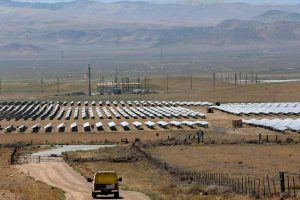
A view of some of the 749,088 solar panels at the California Valley Solar Farm near. (SFGate)
By the end of the discussion, Fit-Razzmatazz410 expressed gratitude for the input, noting he felt better prepared to negotiate with the solar company. He revealed that neighbors who had entered similar agreements were already receiving payments, while others had walked away when initial offers failed to meet their expectations.
The user’s closing remarks reflected both his optimism and caution: “This conversation has been enlightening. I’ll compile everyone’s advice and proceed carefully. Peace be with you all.”
Lessons for Landowners
For landowners approached with similar opportunities, this Reddit thread serves as a rich resource and a reminder of the complexities involved. Key takeaways include:
– Hire specialized legal counsel: Ensure the attorney has experience with renewable energy leases.
– Secure financial protections: Include escalation clauses, decommissioning bonds, and provisions for tax increases.
– Investigate the developer: Research their track record and speak with other landowners.
– Plan for the long term: Consider how the lease will impact estate planning and the land’s future use.
As renewable energy projects proliferate across the United States, stories like this highlight the importance of informed decision-making for landowners weighing the potential benefits of solar leases against their long-term implications.
—
This article was adapted from a discussion thread on Reddit, drawing insights from user-generated content and comments. The views expressed in the original thread reflect individual opinions and experiences and do not constitute professional legal, financial, or environmental advice. Readers are encouraged to consult experts when considering similar opportunities.




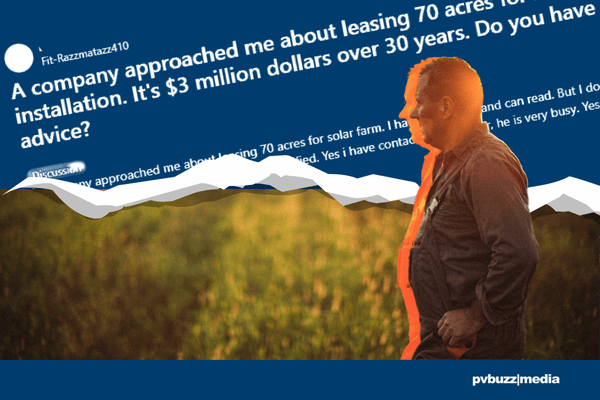

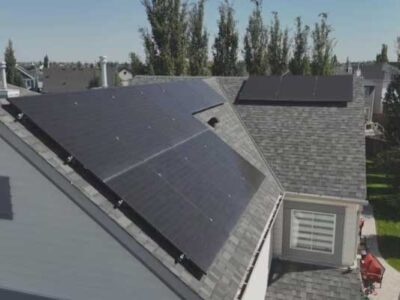
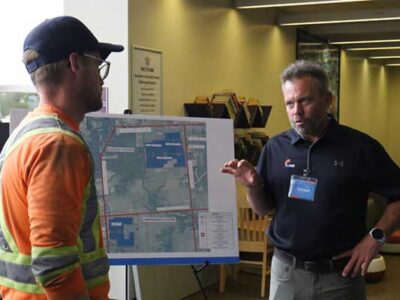





Comments